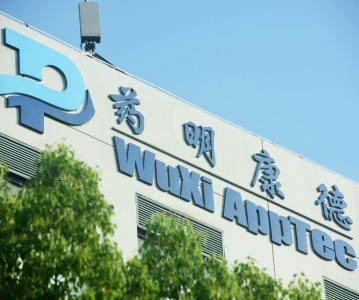Succinity Produces First Commercial Quantities of Bio-Based Succinic Acid
Succinity GmbH, the joint venture between Corbion Purac and BASF for the production and commercialization of bio-based succinic acid, has announced the successful start-up of its first commercial production facility. The plant, located at the Corbion Purac site in Montmeló, Spain, has an annual capacity of 10,000 metric tons and is producing commercial quantities of bio-based succinic acid for the global market. In addition to this first facility, Succinity plans a second large-scale facility. The final investment decision for this facility will be made following a successful market introduction.
“The start-up of our first facility for Succinity bio-based succinic acid represents a key milestone in our plan to become a major producer of biobased succinic acid in the future,” comments Philipp Walter, Managing Director of Succinity. “The combined experiences of the team in Montmeló and the support from Corbion Purac and BASF have ensured the achievement of this important milestone within schedule. With the facility in Spain we will be able to serve the growing succinic acid market.”
The Succinity process is based on renewable raw materials and fixes carbon dioxide. The proprietary micro-organism Basfia succiniciproducens allows for a flexible usage of different feedstocks. Furthermore, Succinity bio-based succinic acid can be produced efficiently without major waste streams thanks to a closed-loop process. An elaborate downstream processing method ensures the production of high quality biobased succinic acid.
Based on technological advances and an increased need for renewable intermediates in different application fields, BASF and Corbion Purac have been working on the development of bio-based succinic acid since 2009. Bio-based succinic acid features a significantly improved carbon footprint compared to conventional, fossil-based succinic acid or other dicarboxylic acids. Bio-based succinic acid is a versatile building block with a significant market potential in the chemical intermediates market. It can be used in a variety of potential applications, such as bio-polymers (e.g. Polybutylene succinate, PBS), polyurethanes, coatings and life science products.
Related News
-
News WuXi to sell CGT manufacturing unit to US-based Altaris LLC
At the tail end of 2024, Chinese-based CDMO WuXi AppTec announced the signing of their deal with private equity firm Altaris LLC, confirming the sale of WuXi Advanced Therapies, the cell and gene therapy manufacturing arm of WuXi AppTec. -
News Women in Pharma: Our hopes for 2025 and beyond
Our last instalment for 2024 of the Women in Pharma series brings you messages direct from the Informa Markets CPHI team as they discuss the advice and insights they have carried throughout their roles working at CPHI, and what they hope to see for the... -
News CPHI Milan Wrap-Up Report: Conference Highlights
Discover the emerging and trending topics of the pharmaceutical industry with our CPHI Milan Conference Highlights, with exclusive insight from pharmaceutical leaders and experts! -
News BIOSECURE Act not included in key defense spending bill for 2025
On December 7, 2024, the Biden administration revealed the 2025 National Defense Authorization Act, an annual defense bill specifying the budget and expenditures of the US Department of Defense. The controversial BIOSECURE Act was notably missing from ... -
News Lessons from CPHI Milan 2024: Sunny Intervals for Pharma Manufacturing?
As the 2024 CPHI conference wrapped up in Milan, we caught up with L.E.K. Consulting – a global strategy consulting firm with deep expertise in pharma manufacturing – to discuss evolving market perspectives and business outlook. -
News Trump 2.0: What does the US election result mean for the healthcare industry?
After Trump won the Presidential election in the US in early November, we take a look at some of the implications a new Trump administration could have on the health and pharmaceutical industry, and on US patients. -
News Women in Pharma: Reflections from Behind the Scenes
In this instalment of our monthly series, the team that brings you the Women in Pharma series each month sits down for a heart-to-heart on what the series means to them, and how they hope to continue their work in the future. -
News Scaling the Industry: CPHI Scale-Up Market interview with YSK Laboratories
For the first time, CPHI Milan hosted the CPHI Start-Up Market, expanding support for emerging and small-sized enterprises in their transition to the next level of growth. In this interview, we spoke with Yuvansh Khokhani, Managing Director of YSK Labo...
Position your company at the heart of the global Pharma industry with a CPHI Online membership
-
Your products and solutions visible to thousands of visitors within the largest Pharma marketplace
-
Generate high-quality, engaged leads for your business, all year round
-
Promote your business as the industry’s thought-leader by hosting your reports, brochures and videos within your profile
-
Your company’s profile boosted at all participating CPHI events
-
An easy-to-use platform with a detailed dashboard showing your leads and performance

.png)





